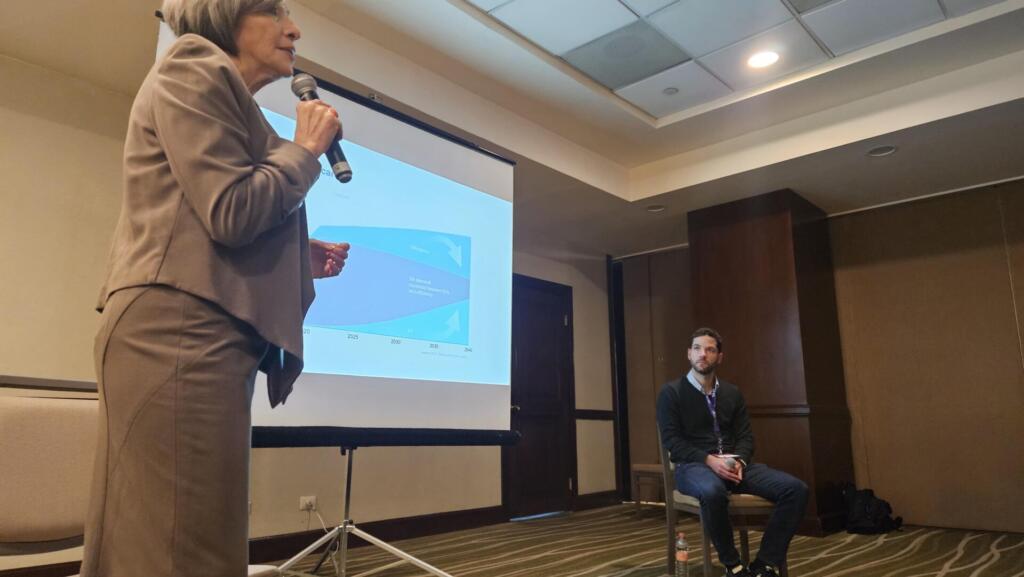
SAN PEDRO GARZA GARCÍA, NL.- The transition towards electromobility represents a revolution in the transportation sector, with significant implications for logistics in Mexico, a change that not only requires the replacement of internal combustion vehicles with electric ones , but also the restructuring of infrastructure, the optimization of routes and the adaptation of supply chains.
During the panel The logistics of e-mobility at ETYL 2024 , Isabel Studer, president of Global Sustainability , detailed that electromobility contributes significantly to the reduction of greenhouse gas emissions , representing a quarter of global emissions.
“We had agreed at a global level with the 2015 Paris Agreement that the temperature could not increase by more than 1.5 °C because the risks for humanity were enormous, because there would be extreme heat waves, more floods and more droughts, we are now close to 2° C” stressed Studer, adding that once we reach 3° C the carbon cycle cannot be reversed.
In this sense, implementing efficient logistics for electric vehicles not only improves environmental sustainability, but also strengthens Mexico’s reputation as a country committed to tackling climate change.
Along these lines, the specialist pointed out that the growing adoption of electric vehicles will reduce the demand for gasoline and diesel , affecting the Mexican oil industry and reducing dependence on fuel imports, which will require a strategic reorientation of companies such as Petróleos Mexicanos (Pemex) to adapt to an evolving market.
“Electromobility is not a passing fad, but an essential necessity for Mexico’s sustainability and economic competitiveness. It is necessary to take concrete and rapid measures, promote public-private collaboration, and train the workforce to ensure a successful transition to a greener and more efficient future,” said Isabel Studer.
VEMO case

During the panel, Vicente Garrido, Head of EV Fleets at VEMO , a Mexican company focused on the transition to electric mobility, shared that after three years in the market “ we have gathered the necessary capabilities to operate in this multidisciplinary space .”
He explained that VEMO has developed an electric fleet that has traveled more than 320 thousand km per vehicle with a battery degradation of less than 10 percent.
In addition, it has built its own super-power chargers, offering more than 600 chargers installed in different parts of the country and operates five stations in Mexico City, dedicated exclusively to its fleet.
According to Vicente Garrido, the electric vehicle market in Mexico has improved significantly, going from a penetration of 0.15% to around 3% and with the arrival of Chinese brands competitive in price and efficiency, continued growth is expected in the coming years.
“Companies that adopt electric vehicles can achieve savings of up to 25% in operating costs, especially in high-intensity fleets with more than 150 kilometers per day per vehicle,” he added.
However, Garrido identified several logistical challenges for electromobility in Mexico, such as charging infrastructure , which requires significant and strategic investment.

He also noted that within fleet management, the use of technology such as telemetry or management software drives adoption, as well as ensuring the durability and efficiency of electric vehicle batteries.
“Mexico must invest in the development and adoption of advanced technologies to maintain its competitiveness,” he said.
He added that this includes the production of electric vehicles, the manufacturing of key components such as batteries and charging systems and the implementation of smart solutions for fleet management.
He also stressed the importance of collaboration between the government, private companies and industry associations to promote electromobility.
Comment and follow us on X: @jenna_GH_ / @GrupoT21














